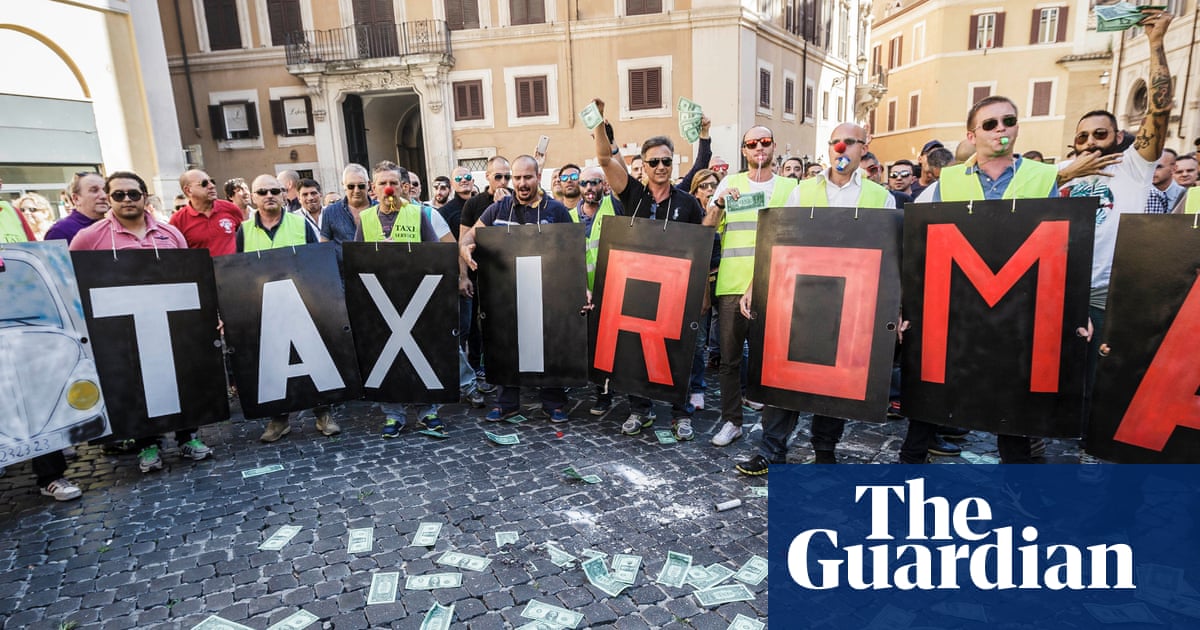Rome taxi drivers are in uproar at the suggestion they drive as badly as madMax Verstappen, with some challenging Formula One drivers to navigate the traffic and potholes of the Italian capital as skilfully as they do.
Verstappen, a four-time F1 champion, was issued with a penalty on Sunday after crashing into George Russell’s Mercedesin the Spanish Grand Prix.
Respondingto questionsabout the incident from an Italian journalist, Toto Wolff, the Mercedes F1 principal, said: “This is road rage, like the taxi drivers in Rome or Naples.”
The journalist tried to defend his country’s drivers, saying: “We have improved a lot inItaly.” Wolff said: “There’s a lot of aggression in the centre of Rome and Naples, without rules.”
While the remarks appear to have been shrugged off by taxi drivers in Naples, their counterparts in Rome, who in recent years have had to contend with wayward electric scooter riders, omnipresent construction sites and tourists being shown around in golf buggies, were outraged.
“Maybe it would be better if Wolff focused on [the performance] of his own team,” Loreno Bittarelli, president of Rome’s largest taxi cooperative, toldCorriere della Seranewspaper.
Nicola Di Giacobbe, from the taxi union, Filt-Cgil, joked: “We drive like a Mercedes since it only goes 30 miles an hour, just like us.” However, Di Giacobbe conceded that Rome has serious problems when it comes to traffic congestion and rule-flouting, making mobility in the city “a no man’s land”.
Roberto, a taxi driver with 40 years’ experience, told Corriere: “We are the best at driving in the chaotic traffic of this city. We are more patient and expert than the average driver. This city has gotten worse in recent years – now it takes 30 minutes to go two kilometres.”
Fellow tax driver, Alessandro, referred to Wolff’s comments as “a banal cliche”.
“We are the ones who are first in not having accidents, otherwise we would lose our working day,” he said. “I would like to seeFormula Onedrivers manoeuvring around construction sites, scooters and golf carts the way we do. Rome is now a jungle, not a Formula One track.”
